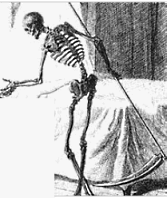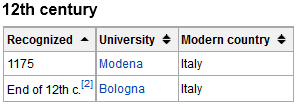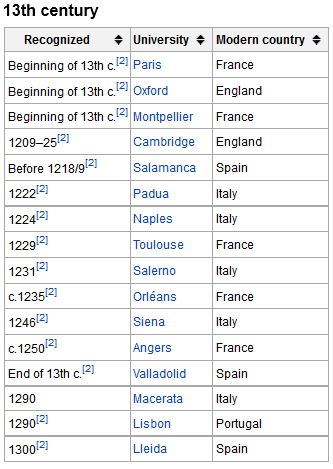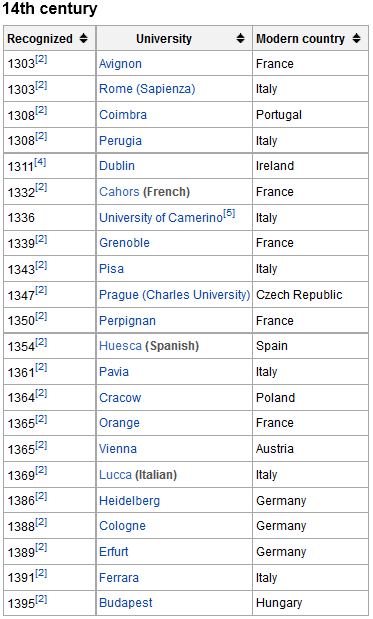

|
Editorial
- 31 October 2012 |
|
|
The Premature Reportage of the Death of the University. Will it Be a Self-Fulfilling Prophecy? |
|
The printing press was invented around 1440 the credit being generally given to Johannes Gutenberg who devised the rapid and mass-produced manufacture of movable type. Using Gutenberg type printing presses up to 3,600 pages could be produced per working day, per press.
By 1500, printing presses in operation throughout Western Europe had already produced more than twenty million volumes.
Scott Adams in his The Dilbert Principle makes the following observation:
Once we had printing presses, we were pretty much doomed. Because then, every time a new smart deviant came up with a good idea, it would get written down and shared. Every good idea could be built upon. Civilization exploded. Technology was born. The complexity of life increased geometrically. Everything got bigger and better. Except our brains. All the technology that surrounds us, all the management theories, the economic models that predict and guide our behavior, the science that helps us live to 80 — it's all created by a tiny percentage of deviant smart people. The rest of us are treading water as fast as we can. The world is too complex for us. Evolution didn't keep up. Thanks to the printing press, the deviant smart people managed to capture their genius and communicate it without having to pass it on genetically. Evolution was short-circuited. We got knowledge and technology before we got intelligence. We're a planet of nearly 6 [currently 7.08] billion ninnies living in a civilization that was designed by a few thousand amazingly smart deviants.
With the invention of this instrument of knowledge dissemination it must certainly have appeared to the seers of the second half of the fifteenth century that the centres of research and dissemination of learning, let alone those disseminators of myths and superstition would cease to survive to the end of the century, unless they were to radically overhaul their their business models,
_____________________
Note: We are informed by a reader that missing from the lists below
is the University of Pécs (Hungry) It was founded in 1367.
_____________________




Tables taken from Wikipedia
But they didn't.
Evolve the universities most certainly have and their faculties will most certainly continue to do so in how they undertake research and how they disseminate learning.
And the use of the internet will have a profound effect on the availability of knowledge (as well as superstition).
And of course modern technology will allow the few thousand current amazingly smart deviants to communicate with each other more rapidly than they ever have before.
So those universities which ARE universities and the true liberal arts colleges in the sense of harbouring smart deviant researchers and disseminators of knowledge rather than being glorified trade schools will not only survive but will prosper throughout the civilised world. The others will revert to training colleges and one hopes good ones.
Finally, those nations who look to twist universities so as to effectively disenfranchise their amazingly smart deviants will simply loose them to those nations who don't.
And as regards our federal and state parliamentarians -- beware the false prophets touting the siren call of the business model.
Alex Reisner
The Funneled Web